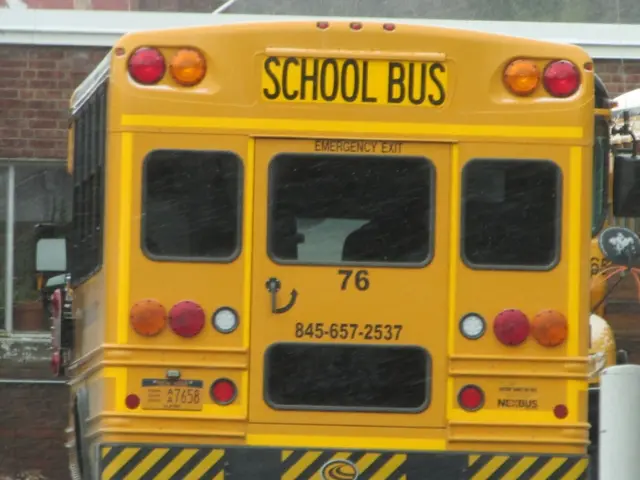Preserving Campus Athletics: A Battle for Future Competitive Games
The Trump Administration issued an executive order titled "Saving College Sports" on July 24, 2025, aiming to protect and expand women's and non-revenue sports while prohibiting third-party pay-for-play payments to collegiate athletes.
Ban on Third-Party Pay-for-Play Payments
Universities are directed to prohibit payments from outside entities to athletes, except for legitimate services such as brand endorsements. The order considers pay-for-play arrangements improper and aims to eliminate them to preserve collegiate sports as a student-centered enterprise.
Protection and Expansion of Women's and Non-Revenue Sports
Colleges with athletic departments generating over $125 million must expand scholarships and maximize roster spots for non-revenue sports in the 2025–2026 season. Smaller colleges must maintain or not reduce opportunities for these sports. The Secretary of Education is tasked with developing a plan to enforce these protections and expansions.
Clarifying Student-Athlete Status
The Department of Labor and the National Labor Relations Board are directed to determine and implement measures clarifying the employment status of collegiate athletes. The goal is to maximize the educational benefits and opportunities offered by higher education institutions through athletics and to prevent athletes from being classified essentially as employees.
Federal Oversight and Enforcement
The Departments of Education, Justice, Health and Human Services, and the Federal Trade Commission are charged with developing regulatory and legal strategies within 30 days to enforce these policies. This includes Title IX enforcement, antitrust considerations, and protection against unconstitutional regulation of interstate commerce.
Legal Protections for College Athletics
The executive order calls for the Attorney General and Federal Trade Commission Chairman to create guidelines and policies to stabilize and preserve college athletics amid lawsuits challenging scholarships and opportunities under antitrust or other legal theories.
Additional Directives
The order also urges collaboration with the US Olympic and Paralympic Committee to protect the role of college sports in developing elite international athletes.
In summary, the Trump Administration’s 2025 executive order mandates federal action to protect and grow women’s and non-revenue sports programs, strictly prohibits third-party pay-for-play payments apart from legitimate endorsements, and clarifies student-athlete status to keep college sports centered on education rather than professionalization. Enforcement will rely on a coordinated federal approach involving education, labor, justice, and trade agencies, using existing laws like Title IX and antitrust statutes.
[1] White House Press Release, "Executive Order on Saving College Sports," July 24, 2025. [2] Department of Education, "FAQs on the Executive Order on Saving College Sports," July 24, 2025. [3] Department of Justice, "Statement of Enforcement Policy on College Athletics," July 24, 2025. [4] Federal Trade Commission, "Statement of Enforcement Policy on College Athletics," July 24, 2025. [5] Department of Labor, "Guidance on Employment Status of Collegiate Athletes," July 24, 2025.
- The federal government intends to safeguard the health of student-athletes by enforcing rules and regulations that focus on education and self-development, rather than turning college sports into a full-fledged business, as reflected in the "Saving College Sports" executive order.
- Considering the cultural significance of collegiate sports, the Trump Administration's directive aims to ensure fair opportunities for women and non-revenue sports, which aligns with the broader goal of promoting diversity and inclusion in education and general news.
- With a focus on education and protection of sports, the executive order also addresses the need for educational institutions to adopt fair practices in athlete recruitment and scholarships, contributing to a fairer and more balanced environment for student-athletes in sports education.
- In light of the executive order, there is an emphasis on maintaining separation between sports and politics, as the federal agencies are mandated to prioritize enforcement, rather than exploiting sports for political gain.
- The executive order's implications extend beyond the realm of sports, influencing various sectors such as business, labor, and law enforcement, potentially impacting politics and international relations as the US Olympic and Paralympic Committee collaborates to develop elite international athletes in college sports.







